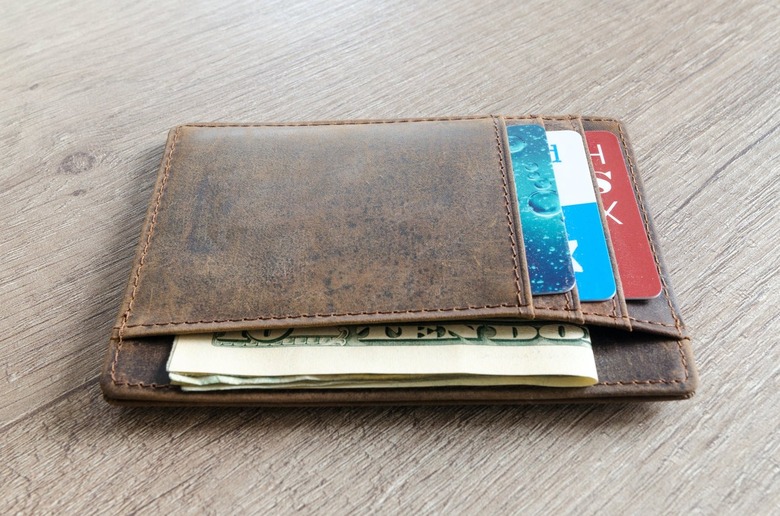3 Simple Things You Can Do To Reduce Your Household Spending
To say that current times are precarious is an understatement. While supply chain issues and inflation are putting a strain on our wallets, the Great Resignation trend — referring to millions of people who have resigned and changed jobs — is likely to continue. Many are still reconsidering their livelihoods while working to save money for the future. Luckily, the following advice is applicable for any situation in which it's wise to tighten the household belt.
Courtesy of Sharita Humphrey, a certified financial education instructor and spokesperson for Self Financial, here are three simple steps she recommends for reducing your household spending.
1. Track Your Spending
1. Track Your Spending
Start by recording your monthly expenses. No two households have the same exact expenditure and a clear overview of your budget can give you the flexibility to reduce or pause certain spending habits. Humphrey recommends writing down even the smallest of expenses, as they can be budget busters. "Reducing the amount you spend on eating out, monthly subscriptions, and online shopping can put more money back into your budget," Humphrey tells Hunker.
Humphrey also warns us of the hidden costs of having bad credit — which you should also be keeping track of. Creditors and lenders take advantage of a low credit score by charging a higher interest rate or even denying goods and services. Luckily, there are ways you can reestablish your credit by obtaining a free copy of your credit report, disputing errors that may have dinged your score, and taking steps to improve your standing, such as paying your bills on time. If you need extra support, there are companies that can assist you in building a healthy payment history. Because there's no one company that fits all needs, Humphrey encourages everyone to do their own research to make an educated choice.
No matter what your circumstances, meticulous tracking of your spending allows you to work toward budget consistency that will both reduce spending and help you feel more financially confident.
2. Plan Your Shopping Trips
2. Plan Your Shopping Trips
We promised simple and this step is just that. Many retailers are raising their prices due to current supply chain shortages and households are spending more money each month on groceries and essentials. Humphrey recommends planning your grocery trips in advance and shopping with a list. This will aid you in staying on budget and avoiding impulse shopping. Choosing to buy household items in bulk and when they're on sale will also help to extend your monthly budget.
Using money-saving and cash-back apps discussed in the third step is another great way to reduce your grocery costs.
3. Use Technology to Save
3. Use Technology to Save
In good times and in bad, in sickness and in health, we seem to be tethered to screens. They can be costly both for our wallet and wellbeing, but sometimes, scheduling a little screen time to strategize and organize our affairs can contribute to financial health.
Humphrey says cash-back apps like Dosh, Ibotta, Rakuten, and RetailMeNot provide a coupon, a rebate on a purchase, or offer points that can be redeemed as a price break on subsequent purchases are a smart way to save.
Another option is to choose the automatic payment options for your credit cards, rent, utilities, and other monthly expenses. Avoiding missing a payment is time and money saved.
Choosing the online option in which your bank sends a notification when your account is below a certain dollar amount is a wise move too. Humphrey explains that this simple action will not only help you avoid penalties — it will also alert you if you've been a victim of identity theft so that you can immediately take action.
And lastly, use your credit cards' reward programs to pay yourself a bonus. To do so, spend the cash-back or points to cover travel or entertainment, or use in case of an emergency.
Budgeting doesn't mean that you'll have to skimp on fun or self-care. "It's important to remember to put yourself as a line item in your budget," Humphrey says. She recommends setting aside a small amount of money each month to reward yourself for staying on track with budgeting. "You can name the line item 'Fun Money' or 'Adventure Money,'" she says. Your credit cards' reward points can be a source for this fund.
Humphrey suggests using cash for this budget line item, as it will give your debit and credit cards a break. However, if you prefer not to use cash, you can designate a credit card, gift card, or debit card for your "Adventure Money" spending to allow flexibility for online purchases. The physical action of transferring this money from a specific card sends you a signal that you're using this particular fund for "Fun Money." This keeps you on track with managing your money and allows you to keep an eye out for mindless spending on your card set aside for fun purchases.
